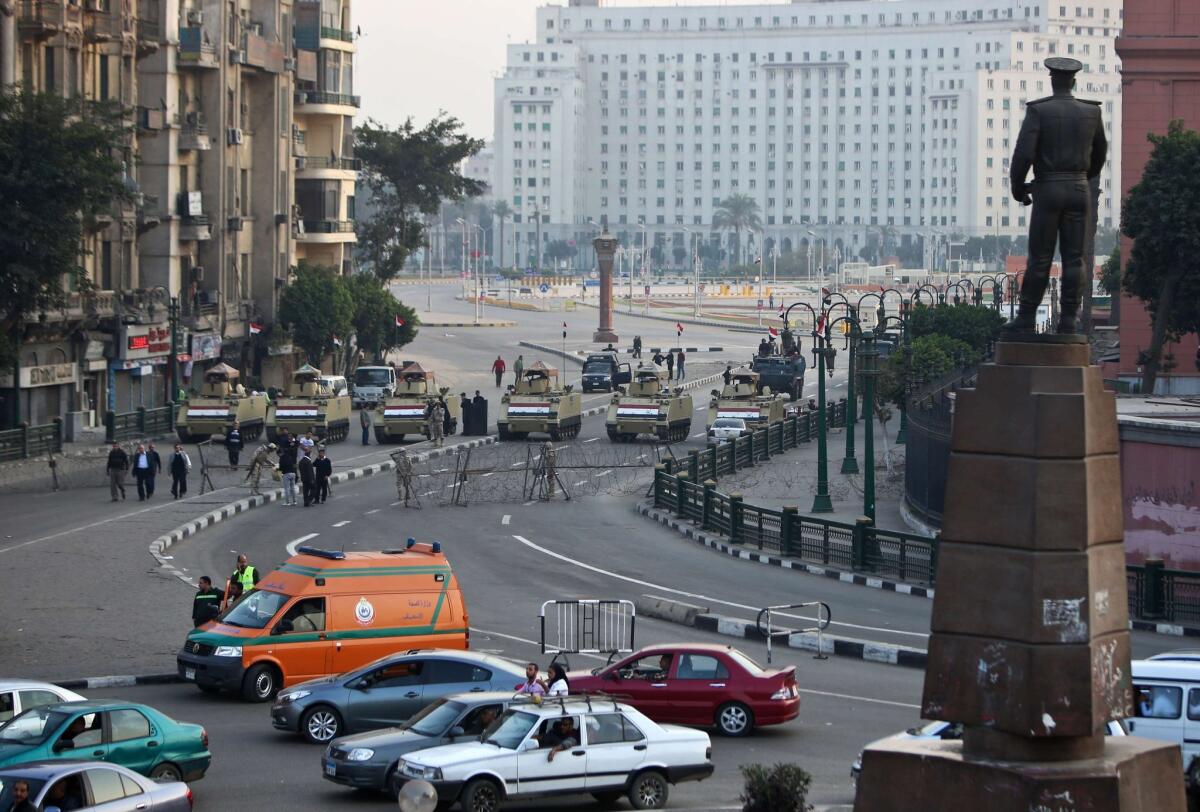American scholar denied entry to Egypt

- Share via
Reporting from Cairo — A well-known American scholar and former diplomat who has been a vocal critic of Egypt’s authoritarian government said Saturday she had been turned away at Cairo’s international airport – the latest instance of an academic running afoul of the administration of President Abdel Fattah Sisi.
Michele Dunne, a senior associate at the Carnegie Endowment for International Peace, had flown to Cairo at the invitation of the Egyptian Council on Foreign Affairs, and was to have been a panelist at a conference organized by the group.
“Authorities denied me entry at the airport, deporting me after holding me for about six hours,” Dunne said in an email from Frankfurt, Germany, during a stopover en route back to Washington. “I asked for a reason, but they refused to give me one.”
Sisi – first as defense minister, then as president – has presided over a wide-ranging campaign against dissent during the last 18 months. The principal target has been the Muslim Brotherhood of deposed Islamist President Mohamed Morsi, but secular figures such aS filmmakers, journalists, activists and professors have also been caught up in the crackdown.
Dunne said she had visited Egypt several times each year for more than a decade without incident. She has written reports critical of Egypt’s curtailment of rights of freedom of expression and the jailing and intimidation of government critics.
A spokesman for Egypt’s Foreign Ministry did not immediately return a phone call seeking comment.
Egypt has barred foreign critics before. Four months ago, the executive director of Human Rights Watch, Kenneth Roth, and regional director Sarah Leah Whitson were denied entry in advance of the release of a report detailing what the group called possible crimes against humanity by the Egyptian government.
While the targeting of a foreign academic is unusual, several prominent Egyptian scholars have found themselves under threat of prosecution or their travel has been restricted.
Political scientist and former parliament member Amr Hamzawy was forbidden to leave the country for months after a tweet deemed insulting to Egypt’s judiciary. Emad Shahin, who has taught at Harvard and served as editor-in-chief of the Oxford Encyclopedia of Islam and Politics, left Eypt nearly a year ago after learning that prosecutors had filed espionage charges against him.
Since Morsi was deposed in July 2013 in a popularly supported coup, more than 16,000 of his followers have been jailed and hundreds killed in street clashes with police. Morsi himself is on trial on a variety of capital offenses, and the Brotherhood, once Egypt’s largest political movement, has been branded a terrorist organization.
@laurakingLAT
More to Read
Sign up for Essential California
The most important California stories and recommendations in your inbox every morning.
You may occasionally receive promotional content from the Los Angeles Times.













